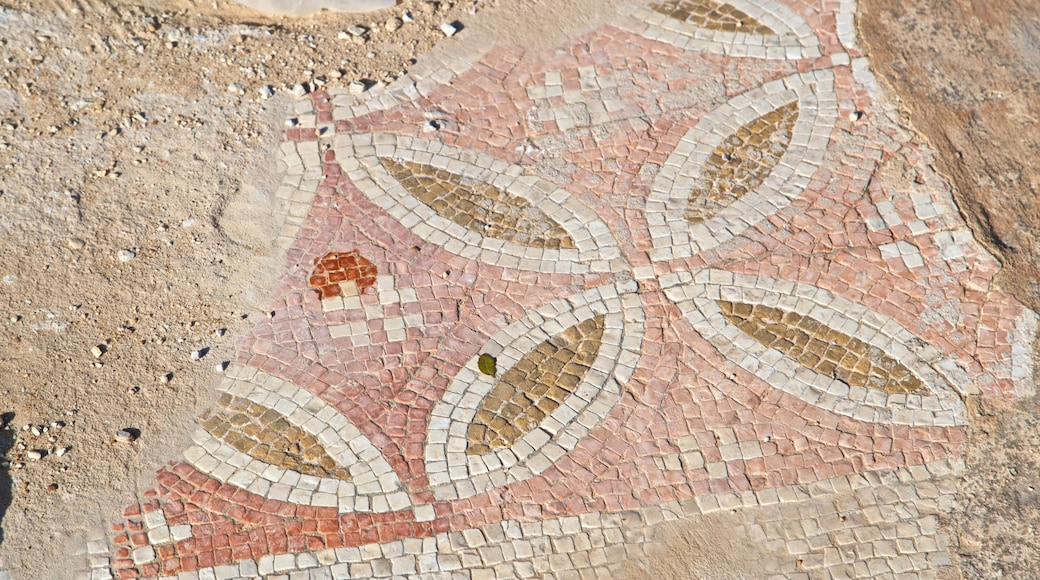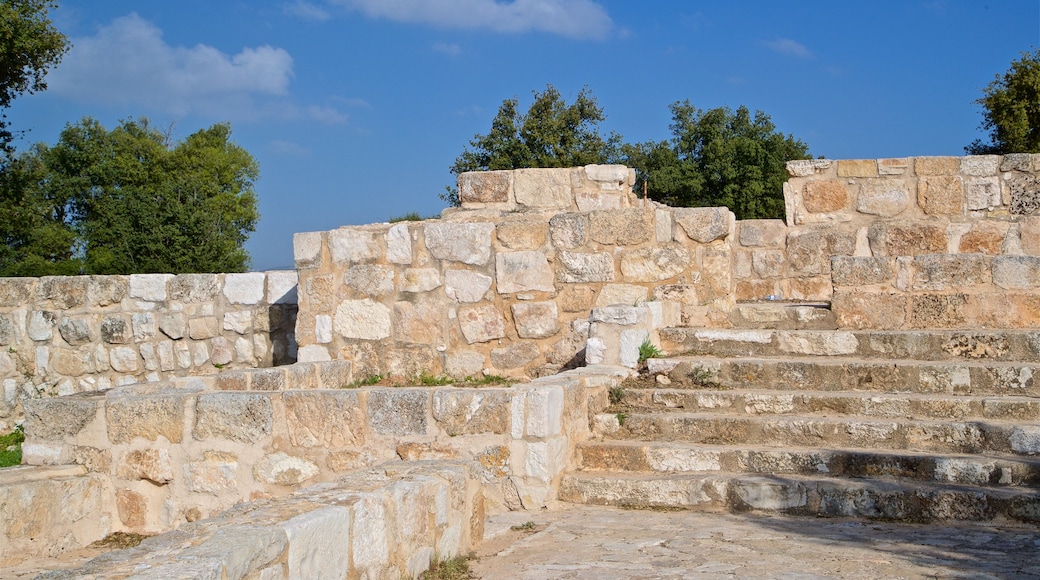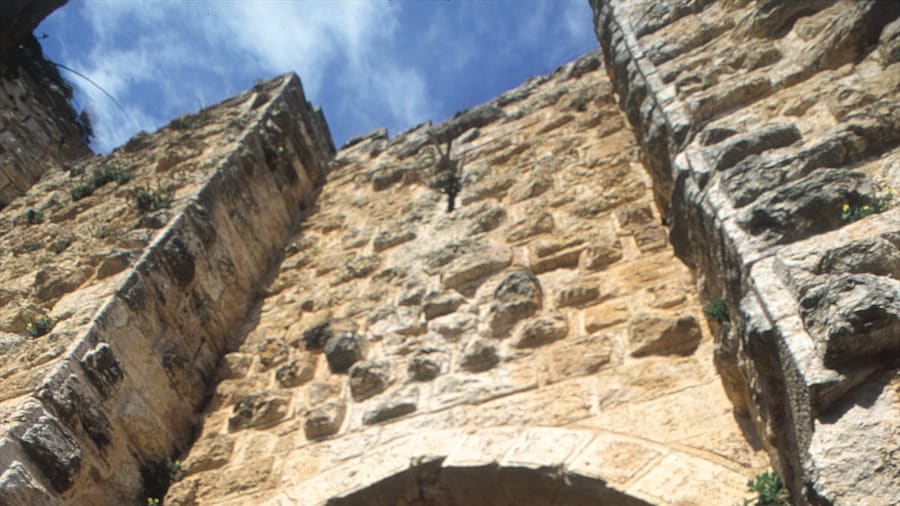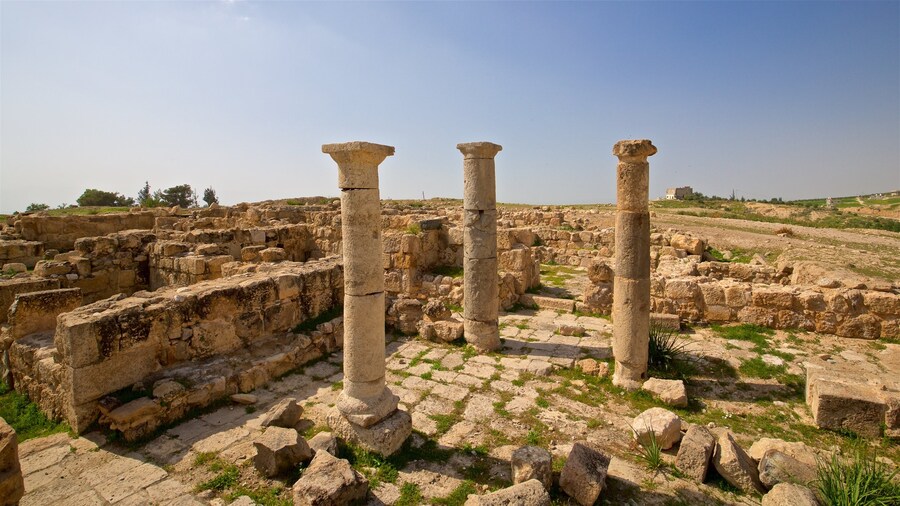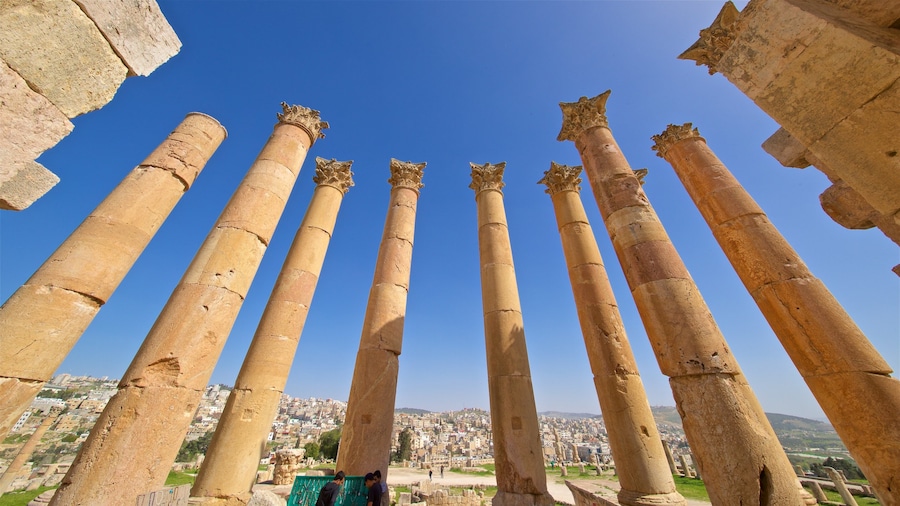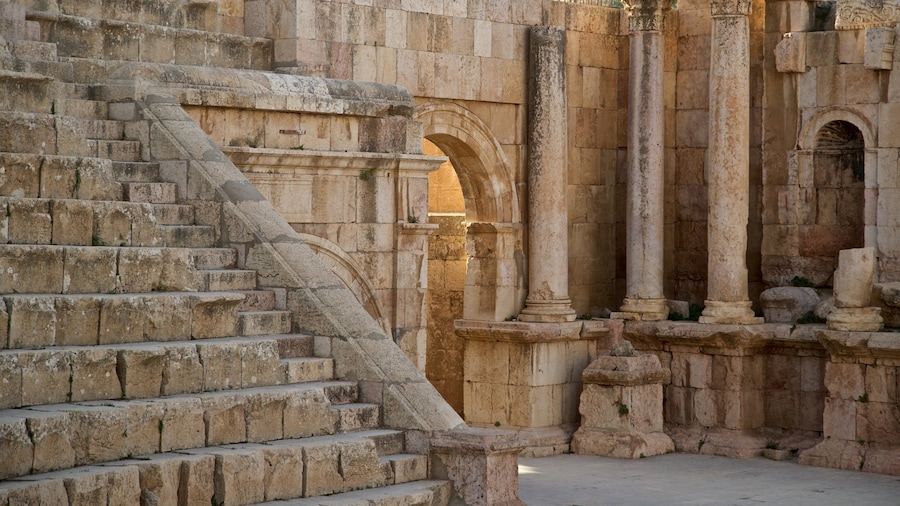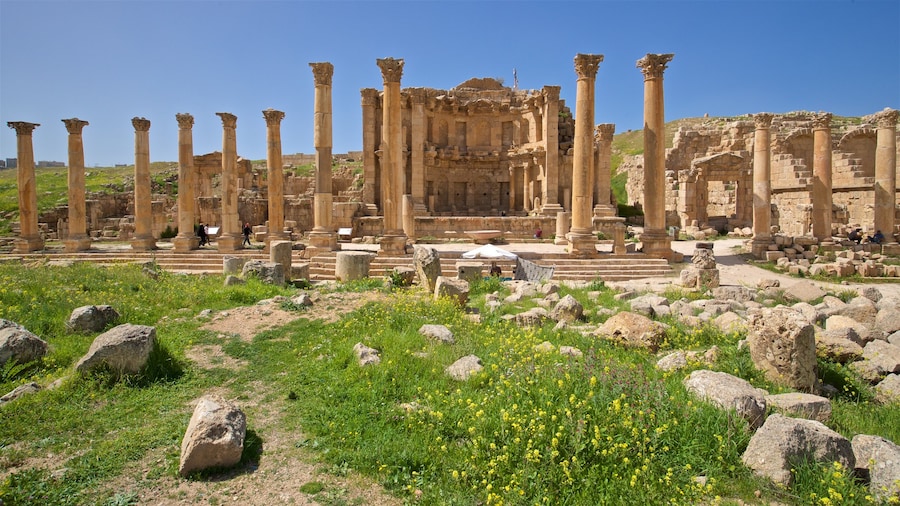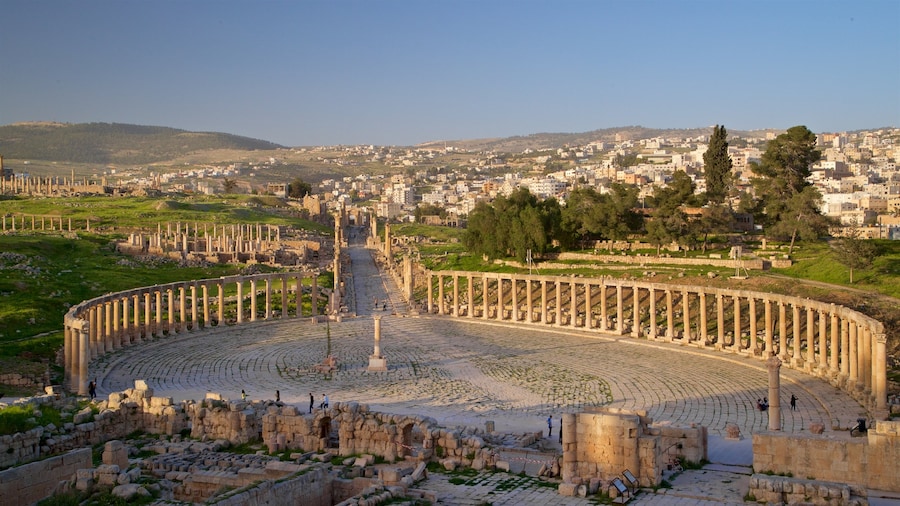See examples of Byzantine-era mosaics and enjoy sweeping views of peaceful countryside at this hilltop pilgrimage site.
Encompassed by the forests and olive groves that spill down the hillsides of Ajloun Governorate is Tell Mar Elias. Join the worshippers that come to pray at this religious and archaeological landmark. Browse church ruins and a fascinating collection of mosaics that have stood for some 14 centuries at Tell Mar Elias. Enjoy the tranquility while gazing out across the fertile Ajloun countryside.
The ruins neighbor the former village of Listib, which tradition states is the birthplace of the Prophet Elijah. A place of worship developed here during the Byzantine period and there’s evidence of buildings that date back to the 7th century. The Vatican recognized the ruins as an official pilgrimage site in 2000. Despite this recognition, it remains a peaceful place to come and contemplate a bygone era and is free from large tourist crowds.
There’s evidence of two churches and the foundations of the lower structure show a cross-shaped layout. The upper church is among the biggest Byzantine religious monuments in Jordan. The mosaics feature floral patterns, geometric shapes and Greek inscriptions. Look for the fragmented parts of a baptismal font, tombs and water cisterns.
A large oak tree decorated with ribbons and cloths stands in the upper church. The ribbons and cloths are attached by followers of all faiths who come to pray for wellbeing. Sit at the edge of the ruins and admire the panoramic views of Jordan’s greenest landscape. Spot Listib Mosque, terraced orchards and rolling hills.
Tell Mar Elias is open daily, there is an admission fee and parking is available. It’s just a 10-minute drive from Ajloun and 90 minutes by car from Amman. An enjoyable way to get here is to follow the trail that winds uphill from Ajloun Castle. The Prophet Trail is a 4-hour, one-way walking route to the ruins from Ajloun Forest Reserve, passing through farmland and fruit orchards.


